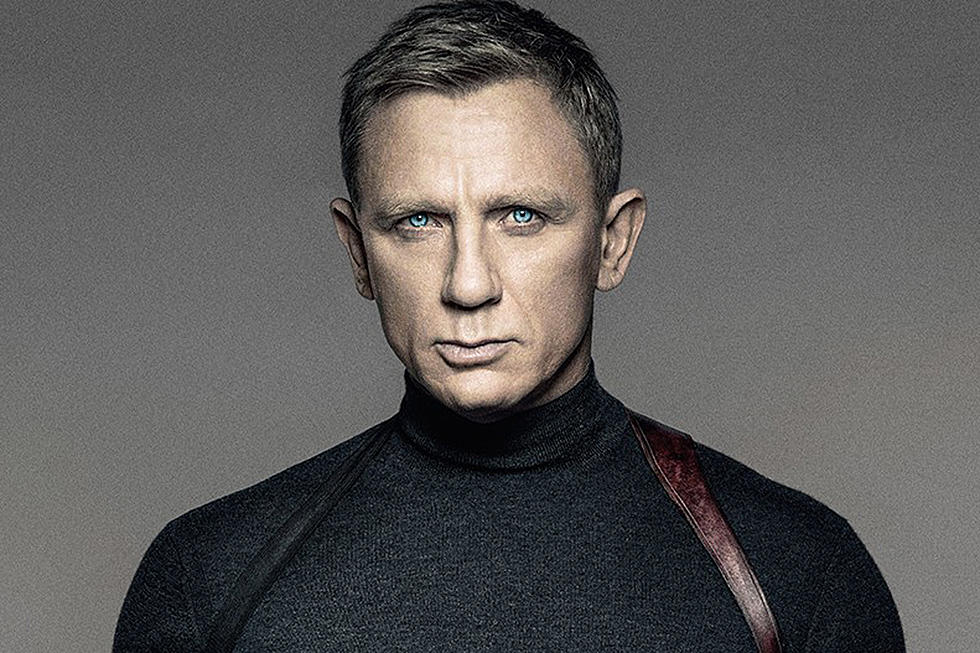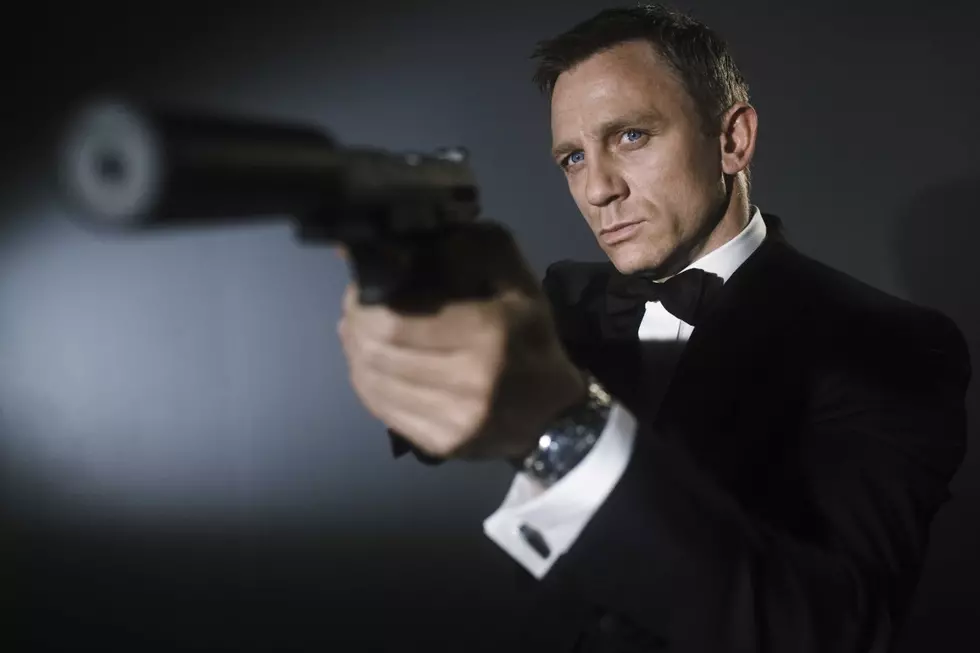
‘Spectre’ Review: For James Bond, Everything New Is Old Again
Who is James Bond? Why does he carouse, kill, and quip? What drives him — and by extension, what drives the series of films that chronicles his adventures? These questions rarely came up in Bond’s glory days. He arrived in 1962’s Dr. No almost fully formed; a suave introduction, a drink order, a license to kill. It wasn’t until Daniel Craig assumed the role in 2006’s Casino Royale that the franchise began to wrestle with what made the man tick, and to really consider his place in our world. Hopefully this trend toward self-examination and mythology reaches its apex and conclusion with Spectre, a movie so obsessed with getting inside its protagonist’s head that it actually shows the villain trying to drill his way into James Bond’s skull.
If there was any doubt about James Bond’s continuing relevance in the modern world, Skyfall should have put it to rest; the film was a huge critical success, and the biggest blockbuster in the franchise’s 50-year history. It also served as a fictional referendum on James Bond, with his superiors questioning his fitness for duty before he proves himself one more time. And yet three years later, Spectre devotes precious minutes in a movie that’s at least 20 minutes too long trying to demonstrate one more time that there’s still a place for Bond in an age of cyberterrorism, automated drones, and constant surveillance. These movies keep arguing for something everyone already agrees with — yes, we still want Bond, provided the movies are amusing and stylish and not simply 150 minutes spent gazing into their own extremely handsome navel.
Spectre is amusing and stylish, but only to a point. And its fixation on validating Bond’s worth in 2015 through a Snowden-esque subplot about a worldwide security network feels particularly inappropriate given the fact that so much of the movie is spent looking to Bond’s past, rather than his present or future. One deranged madman once told 007 you only live twice, but James Bond’s already lived several more lives than that. In Spectre he seems to revisit most of them. There’s a health clinic atop a Swiss mountain like On Her Majesty’s Secret Service; a romantic interlude and ferocious fistfight on a train like From Russia with Love; an incredibly well-designed but highly impractical supervillain lair like You Only Live Twice or The Spy Who Loved Me. And, of course, there’s the return of SPECTRE, the criminal network that hounded 007 and MI-6 until a lawsuit over the rights to the concept made them vanish like ghosts.
They finally return to haunt Bond again, this time under the leadership of a shadowy figure played by Christoph Waltz who claims that he is “the author” of all of Bond’s pain, and takes credit for engineering all the events of Casino Royale, Quantum of Solace, and Skyfall. Trailers have been careful not to reveal the character’s identity or true motives, perhaps to maintain an air of mystery and suspense around the film.
Seeing Spectre suggests a second possibility: The filmmakers know these details, essentially a retcon of the highest and dopiest order, will make a lot of viewers roll their eyes, and they’re trying to prevent that from happening until after they’ve bought their tickets. Waltz’s madman, with his refined taste in clothes and inexplicable sense of hospitality, is precisely the sort of cliché that had gotten so tired by the early 2000s that it necessitated an entire franchise reboot. Rather that reinvent the type for 2015, it simply rehashes it; even Waltz’s costumes recalls the Bond villains of yesteryear. For a franchise so insistent on its freshness, its villain looks awfully old-fashioned. In Spectre, everything new is old again.
Every James Bond film is a product of its time; they rarely set trends, but often document existing ones. When Star Wars became the biggest hit in Hollywood history, Bond went to space (in Moonraker). When parkour became all the rage in action movies, he starting running up and down buildings and construction cranes (in Casino Royale). At first glance, Spectre seems unusually disinterested in contemporary references beyond its sideways attempt to address our paranoia around Edward Snowden’s revelations that our government may be watching us. But its odd fixation on Bond’s past puts it in line with so many other major franchises of 2015, and Hollywood’s increasing fixation on nostalgia. And Spectre’s use of Waltz to make it seem like all of these Daniel Craig Bonds have been part of an elaborate and intricate multipart story hints at the influence of Marvel and its cinematic universe of interlocking movies.
Once Waltz’s mystery man comes clean, Spectre falls completely to pieces. Before he does, it’s at least an atmospheric and stylish thriller, one that feels very much like a continuation of the aesthetic director Sam Mendes’ laid out in Skyfall. M (Ralph Fiennes), Moneypenny (Naomie Harris), and Q (Ben Whishaw) are all back in place, each with a bit more screen time than usual, as full-fledged partners in Bond’s attempts to expose and destroy the revitalized SPECTRE and push back against the simultaneous (and obviously connected) plot to install a new worldwide security system. Mendes’ returning cast is superb and fit perfectly together.
The movie’s missing the lush cinematography of Roger Deakins and the crisp editing of Stuart Baird, but their replacements, Hoyte Van Hoytema and Lee Smith, are no slouches in either of their fields. Still, it’s hard to argue Spectre’s not quite as pretty, or quite as propulsive, as Skyfall — or that it completely squanders both of its new Bond women: Monica Bellucci, who has just two brief scenes as the wife of one of Bond’s new enemies, and Léa Seydoux, who plays the larger but unmemorable role of Madeleine Swann, Bond’s reluctant sidekick after she’s targeted for assassination by Spectre goons.
Skyfall did the why-do-we-need-James-Bond thing about as well as it can be done. All of Spectre’s introspection just belabors the point, and then the film simply labors — to find an ending that will live up to all the menace and mystique of its title organization. The Daniel Craig Bonds have been praised for their seriousness, but Spectre finally pushes things too far. It’s so concerned with being an “important” consideration of a pop culture icon, it rarely remembers to be a satisfying adventure story, and its overeager attempts to justify its existence and build this epic mythology around its hero and his arch-nemesis feels like a symptom of a franchise with a deep sense of inadequacy, like a middle-aged man who buys an expensive sports car and sleeps with a lot of women to ward off a midlife crisis. Come to think of it, maybe that’s why James Bond does what he does. Deep down, he’s just overcompensating. Spectre certainly is.
Additional Thoughts:
-The only really outstanding action scene in the film is the cold open, with Bond wandering through a Mexican Day of the Dead parade in a single long take before he gets caught in a frenetic shootout, explosion, chase, and fight. It kicks things off in high style, but the film never comes close to topping it.
-Daniel Kleinman’s opening titles are terrific, and even more surreal than usual. There’s one image in there, of an octopus with a human skull and eyes, that is incredibly nightmarish. I’ll be seeing that thing in my dreams.
More From 100.7 KOOL FM









